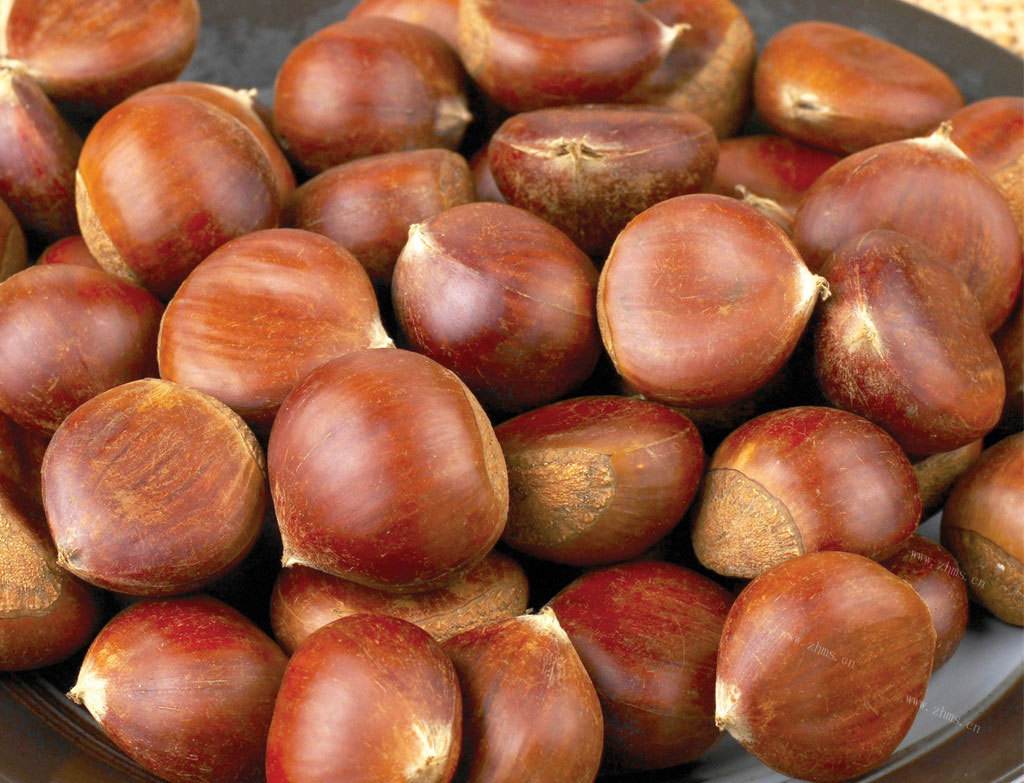Healthy diet
Chestnut, the fruit of man’s kidney
Chestnut, also known as chestnut, chestnut, rose chestnut and chestnut, is the kernel of chestnut, a woody plant of Fagaceae. It is a special product of our country, known as the “king of dried fruits”. In foreign countries, it is also known as “ginseng fruit”;. It has a strong tonic function for human body, comparable to ginseng, astragalus, angelica, etc., so it is also known as the “fruit of kidney”;.
In August and September every year, chestnuts mature and come to market. It is a folk custom to eat chestnuts in autumn. Chestnut is sweet and warm. It can strengthen the spleen, stomach, kidney and tendons. According to Chinese medicine, chestnuts can nourish the stomach and spleen, strengthen the waist and kidney, promote blood circulation and stop bleeding. The famous traditional Chinese medicine in the past dynasties believed that chestnuts are sweet, warm and nontoxic, which enter the three meridians of the spleen, stomach and kidney, with the functions of invigorating the spleen and kidney, strengthening the kidney and tendons, promoting blood circulation and hemostasis. They are suitable for chronic diarrhea caused by deficiency of the spleen and stomach, aching waist and knees caused by deficiency of the kidney, low back and limbs, frequency of urination and golden sores. Sun Simiao of Tang Dynasty said: “chestnut is the fruit of kidney, and kidney disease is suitable for eating.”. &”Compendium of Materia Medica” points out: “to treat kidney deficiency, weakness of waist and feet, and to hold chestnut in a bag and hang it dry. Eat more than ten pieces a day, and then eat porridge to help them. They will be strong for a long time. &Therefore, people with kidney deficiency may as well eat more chestnuts.
Chestnut is rich in unsaturated fatty acids, vitamins and minerals. It can prevent hypertension, coronary heart disease, arteriosclerosis, osteoporosis and other diseases. It is a good tonic for anti-aging and longevity. Chestnut contains riboflavin, often eat chestnut is good for children’s aphthous ulcer and adult’s aphthous ulcer. Chestnut is a kind of dry fruit with high carbohydrate content, which can supply more heat energy to human body, help fat metabolism, and have the functions of benefiting qi, strengthening spleen and nourishing stomach and intestine. Chestnut is rich in vitamin C, can maintain the normal function of teeth and bones, can delay the aging of human body, and is an ideal health fruit for the elderly.
However, chestnuts are high in sugar, so people with diabetes should eat less or not; people with weak spleen and stomach, dyspepsia or rheumatism should not eat them.
Stewed chicken soup with millet
Ingredients: 100g chicken, 5g ginger, 10g medlar, 15-20 chestnuts, a little salt and chicken essence.
Method: first, separate the whole chicken, chop the chicken into inch pieces, select 100g of bone and meat, blanch the chicken in boiling water, and then put it into the soup pot. Put Chinese wolfberry, chestnut and ginger into the pot one by one, pour in some high soup, boil the pot over high heat, and simmer for another hour. When out of the pot, put the salt and chicken essence into the soup.
Efficacy: replenish qi and blood, liver and essence.



